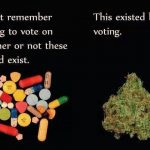Source: London Evening Standard
15 January 2013
By Simon Jenkins
The 1971 Misuse of Drugs act was the stupidest and most ineffective ever passed – but has the PM got the guts to change it?
Yet another parliamentary group has pronounced in favour of drugs decriminalisation. It still won’t happen.
My first task as a young journalist was to cover the “midnight queue” outside Boots in Piccadilly. A pathetic line of heroin addicts would wait for the clock to strike 12, then troop in for the new day’s prescription. It was there I met Ken Leech of St Anne’s, Soho, “chaplain to the queue” and an early monitor of London’s then incipient drug scene.
A few months later and to Leech’s anger, the 1971 Misuse of Drugs act criminalised heroin and handed the queue and Britain’s entire drugs trade over to the world’s racketeers, crooks and desperadoes. It was the greatest ever act of denationalisation. The drugs market soared, and untold human misery with it. The act was the stupidest and most ineffective ever passed by Parliament. No one dares so much as amend it.
Every few months, a committee or research group points up the absurdity of keeping narcotics illegal. As the multi-billion-dollar trade rolls its horrors round the globe, it becomes ever more futile to pretend it can be curbed or even regulated by law. It has wrecked whole cities in America and is wrecking countries such as Mexico.
In Britain, only two things have changed in the past decade. Legal heroin needle exchanges have drastically cut the rate of HIV transmission.In addition, public opinion has slowly shifted. In 2001, the Mail on Sunday headlined a popular majority in favour of reform, at least to “consider” legalisation. It led the then home secretary, David Blunkett, to prefer cautions to prison for possession. There followed a decline in cannabis use to this day.
Otherwise, nothing has changed. Drug use and abuse continue high. Some 35,000 people a year are sentenced under the drug laws. The market is wholly uncontrolled. Every few months some parliamentary body or drugs adviser recommends reform, and is ignored.
Yesterday it was the turn of another cross-party parliamentary group under Lady Meacher to follow a Commons group last year in pronouncing in favour of decriminalisation. She addressed the status of “legal highs”, of which new ones flood into Britain via the internet every week.
Rather than try to ban them by the score, Meacher advocates that they should be sold as “class D” drugs by pharmacists, their contents tested for safety and clearly labelled.
If evidence then showed no rise in addiction, other currently illegal pills might be switched to the legal list and sold on the same basis. Chemical narcotics would be safer and the profits would go to a better cause than the global drug cartels and their laboratories.
You can tell that an argument is won when its opponents ignore all evidence and cry that change would “send the wrong message”. It is the last cry of the unreasoning classes.
To them it does not matter that 40 years of messaging has sent drug use soaring. They do not care that between a quarter and half of young people “experiment” with drugs, when they are emotionally and physically most vulnerable. They do not care for the £3 billion of public money spent on the consequences, nor the thousands of otherwise innocent people whose lives are ruined. None of this matters against a fatuous “message”.
Attempts to control the freedom of young people to cause themselves harm — all drugs do that in some degree — rarely work. There is no great difference between countries with draconian regimes, such as Britain and most American states, and those with liberal ones, such as Portugal and the Netherlands. Young people take very little notice of government. Each side can find statistics to help its case. The only robust generalisation is that draconian laws have been counter-productive, and they are more expensive.
What is baffling is the intransigence of British politicians on the subject. Plenty are individually reasonable. The Deputy Prime Minister, Nick Clegg, suggested last month that “the war on drugs has been lost on an industrial scale”. Sadly he is in office, not in power. David Cameron implied the same, but that was before he became Prime Minister. Some three-quarters of MPs agree individually. They read the surveys, reports and opinion polls — all unanswerable. Yet the mere mention of the subject sends most politicians screaming down the road with bags over their heads.
All we can do is keep shouting. Usually the problem is that everyone is terrified into timidity. Lady Runciman, for six years chair of the independent UK drug policy commission, recently pleaded for the legalised possession. But she could not bring herself to tackle the real taboo of supply and suggest the open sale of drugs in shops. This now happens in Amsterdam and California, venues visited by British drug researchers with the shivering hesitancy of a parson in a brothel.
Without legal supply, the distribution, price and marketing to the young of drugs remain in the hands of crooks and killers. Here Meacher’s report offers at least a glimmer of a way through. If the Government could agree to allow “legal highs” to be sold under licence by chemists, it would open the door to the legalisation of currently illegal narcotics. This is at present the only game in town.
No one in London buys alcoholic liquor in unmarked bottles from the back of a pub. The reason is that it would be dangerous and unnecessary.For 40 years we have let our children do just that with drugs. It is mad. The drug laws proliferate criminality and cause public harm. Can no one in real authority admit it?




 Creative Commons Attribution
Creative Commons Attribution